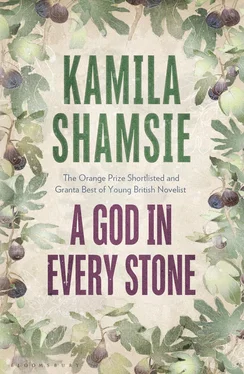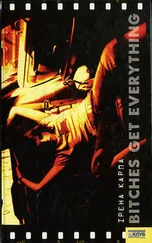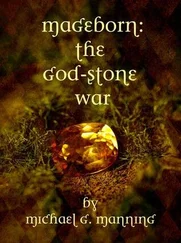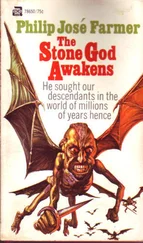— Inqilaab Zindabad!
At the sound of the Khudai Khidmatgar boys’ cry a window shutter opens and an old woman darts her head out like a cuckoo in an English clock.
— What now? What’s happening?
— The English have locked up our leaders at the Kabuli Gate thana. Send your sons to join the protest.
Najeeb reconsiders his route to the train station. There is a new kind of shouting. A man comes running into the alley.
— They’re killing us.
One of the red-shirted boys catches the man by the shoulder. Najeeb tells himself the man is speaking in metaphor, but he knows this isn’t true. Something in his expression has been stripped away or pasted on — it isn’t clear which, but Najeeb knows the man, has seen him hundreds of times selling sweetmeats in the bazaar, and yet he almost didn’t recognise him.
Despite his crazed air, when the man speaks he is lucid: armoured cars drove into the crowd of party workers accompanying the leaders who had presented themselves at the jail, as promised, for arrest, and there are bodies along the Street of Storytellers, how many dead, how many wounded it’s hard to say. He has barely finished speaking when Najeeb takes off, running.
He runs into a tumult. Everyone in the Walled City seems to have heard what has happened, dozens making their way to the Street of Storytellers; people standing on roofs and leaning from balconies catching rumours out of air and tossing them down into the alley. A car on fire. An Englishman knocked down with a stone. A horse, something about a horse. An Englishman run over by a horse. No, an Englishman run over by a motorcycle. No, an Englishman on a motorcycle run over by a horse. No, a horse which refused to fight killed by an Englishman. An armoured car reversing into — a horse? An Englishman? A motorcycle? A gun. A stone. An unarmed crowd.
Then gunfire. Not one bullet, or two, but a machine-gun staccato. Where there were people standing on rooftops now there is sky. Through sheer will Najeeb forces past the paralysing terror and picks up speed.
The noise as he approaches the Street of Storytellers is too dense to separate into its components. A door opens and a woman in a bright green kameez with eyes to match steps out. He calls to her to return inside to safety, but she ignores him and continues forward. He catches the scent of walnuts and plums. The chaddar covering her head is streaked with the red-brown of the Khudai Khidmatgar. It’s still wet with dye, and her face has red-brown smears where the fabric clings to her skin. A knife-blade flashes in her hand before she disappears around the corner.
Sounds from above draw his attention and he sees people moving about on a roof — the carpet-seller’s roof, which commands a clear view of the Street of Storytellers. The woman with the dyed face failed to securely close the door to the house, and Najeeb hesitates only a moment before entering and making rapid progress up the stairs and through the topmost door. There are no men, only women and children up here. The women are standing on the lip of the roof and looking over the matting to the street below, the children sitting on the broad partition wall which divides this roof from the one next door. The sight of the uncovered women makes him hesitate until one, in a blue kameez with mirrorwork on its sleeves and a braid reaching down to the dip of her back, turns to look at him and then shrugs as if to say, Why not? The walnut-plum scent is strong. He passes the bucket from which it emanates. Next to it a clothes line draped with men’s garments dyed red-brown. Sun strikes a dyed shirt — a heart explodes.
He walks to one corner of the roof, maintaining distance from the women; other than the one with the braid they either haven’t noticed him or are ignoring him.
Below, a horse lies dead in the street, its mane drenched in blood. An armoured car is on fire, and something else, a man, is that a man beside the armoured car, his flesh charred. More armoured cars block the exit through Kabuli Gate. A crowd of hundreds of Peshawaris fills the Street of Storytellers. Soldiers with bayonets at the ready face them. In between, the dead. One of the dead starts to crawl. A group of men in khaddar clothes move forward and lift him off the ground. The crowd parts to let them through and a rapid silence races through the street so that his cry can be heard all the way up to the rooftops.
— Inqilaab Zindabad!
The crowd takes up the demand for revolution. They move forward to gather up the dead. But now the English officers are shouting something and the soldiers with bayonets advance, not only forward but also in an encircling movement to place themselves at the mouths of the alleys leading into the Street of Storytellers. He’ll have to find some other route in, if in is where he chooses to go.
Najeeb Gul looks over the boundary of the Walled City. A fire engine speeds towards Kabuli Gate, but everything else is at peace in the Cantonment and beyond, all the way to the distant hills. Lush fields and fruit trees and wide streets and English architecture. A man walking a dog. Someone meandering through the grounds of the Museum. At the train station, the most anxious or eager of those awaiting the train from Karachi have already arrived on the platform. He looks around the jigsaw of roofs and sees how he can leap his way onto and across the City walls. To the train station. Vivian Rose Spencer.
The escape path becomes clear in order for him to reject it. Where is Qayyum? He forces himself to look down among the dead. None of the bodies are familiar, but what does that mean? A dead Qayyum could never look familiar. If only the shadow-fearing version of his brother which had returned from France had left some residue in Qayyum’s character, instead of being replaced by a man who simply chose another army, another leader to march behind, this time without a gun to protect him.
The Peshawaris in the street are passing wooden planks and boxes over their heads to the men at the front of the crowd. No, not a crowd — they are a platoon, a battalion, with a battle cry: Inqilaab Zindabad. Najeeb wants to shout at them. They are unarmed, hemmed in. He has never seen anything so ridiculous. There is a low table next to him, with a mirror and razor and mug of water on it. The razor gleams with possibility. Down on the street, the men in the front rows hold up the planks and boxes like shields and start to advance. Bayonets splinter the wood, but the distraction is sufficient for the men just behind the shield-bearers to lift up the wounded and pass them back through the crowd.
There’s Qayyum. Near the front of the action, of course. A soldier with a bayonet rushes him. Najeeb tastes his own heart. Qayyum holds up a plank; the bayonet catches in it. Qayyum tugs and the bayonet leaps out of the soldier’s grip, its tip firmly embedded in the plank. Qayyum’s strong arms can rip the bayonet from wood, turn it round to pierce the soldier’s belly in a second. But he merely tosses it at the soldier’s feet — wood and bayonet — and moves back into the unarmed platoon which closes around him and cuts him off from Najeeb’s sight. Najeeb understands that in his brother’s mind he has just made defeat impossible. He doesn’t care about victory or defeat — he wants Qayyum alive.
One of the girls on the roof throws a stone. The concentration on her face is tremendous but the stone makes it no further than the shop awning beneath. One of the women pats her head with pride but points out that she’s more likely to hit a Pashtun than an Englishman at this distance; taking another stone the woman slings it, low and fast, towards the troops. The street in front of the soldiers is now littered with stones, though Najeeb sees only one English soldier being helped away, blood pouring from the side of his face.
Читать дальше












